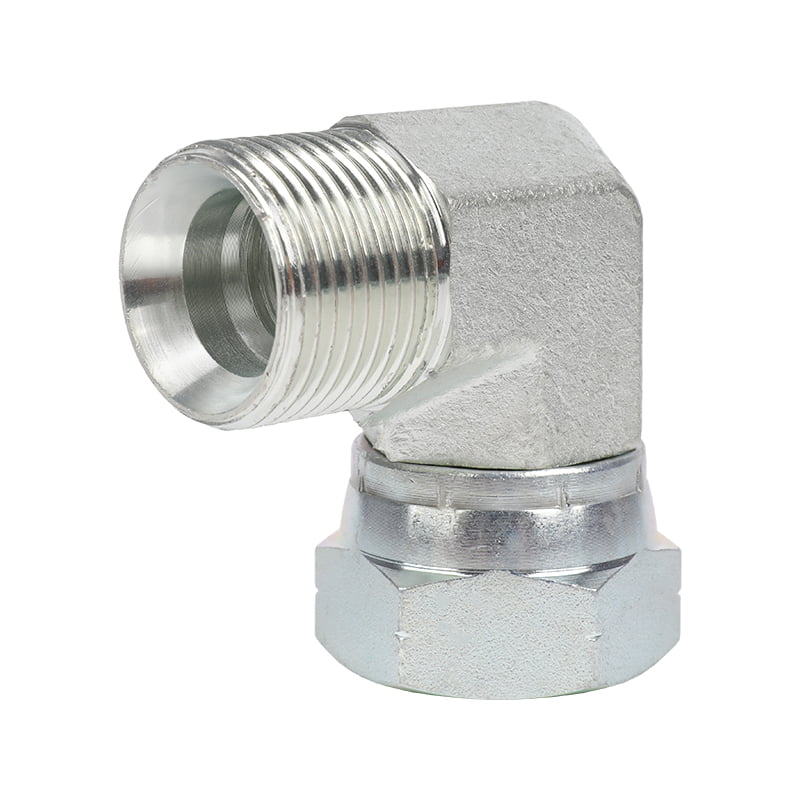What are the advantages of using stainless steel hydraulic fittings in industrial applications
Author:admin Date:2023-04-24
Corrosion Resistance
One of the primary advantages of using stainless steel hydraulic fittings is their exceptional resistance to corrosion. Stainless steel contains chromium, which forms a passive oxide layer on the surface of the metal, protecting it from corrosion caused by exposure to moisture, air, and other corrosive substances. This makes stainless steel hydraulic fittings ideal for use in harsh environments, such as marine and chemical processing applications.
Strength and Durability
Stainless steel is an incredibly strong and durable material, making it well-suited for use in high-pressure hydraulic systems. It can withstand extreme temperatures, pressures, and vibrations without cracking or corroding, ensuring long-lasting performance and reliability. Stainless steel hydraulic fittings are also resistant to wear and tear, making them less likely to break or leak over time.
Compatibility with a Wide Range of Fluids
Stainless steel hydraulic fittings are compatible with a wide range of fluids, including water, oil, gas, and chemicals. This makes them a versatile choice for a variety of industrial applications, where different types of fluids may need to be transported through the hydraulic system.
Ease of Maintenance
Stainless steel hydraulic fittings are relatively easy to maintain, thanks to their resistance to corrosion and wear. They require minimal cleaning and can be easily replaced if they become damaged or worn. This means that downtime and maintenance costs can be minimized, keeping the hydraulic system operating at peak performance.
Reduced Risk of Contamination
Stainless steel hydraulic fittings are also beneficial because they reduce the risk of contamination in the hydraulic system. Stainless steel is non-porous, which means that it does not absorb fluids or particles that can contaminate the fluid passing through the system. This makes it ideal for use in industries where the purity of the fluid is critical, such as food and beverage processing, pharmaceuticals, and semiconductor manufacturing.
In conclusion, stainless steel hydraulic fittings offer a wide range of benefits for industrial applications. They are resistant to corrosion, strong and durable, compatible with a range of fluids, easy to maintain, and reduce the risk of contamination. If you are looking for a reliable and versatile material for your hydraulic fittings, stainless steel is an excellent choice that can provide long-lasting performance and reliability.
90° ELBOW BSP MALE 60° SEAT / BSP FEMALE 60° CONE 2B9

Stainless steel hydraulic adapters are fittings that are used to connect hydraulic hoses, pipes, and other components in a hydraulic system. These adapters are typically made of stainless steel, which is a type of corrosion-resistant alloy that is well-suited for use in hydraulic systems.
There are various types of stainless steel hydraulic adapters available, including male and female fittings, elbow fittings, tee fittings, and flange fittings. The specific type of adapter you will need will depend on the configuration of your hydraulic system and the specific connection requirements of your hoses and other components.
Stainless steel hydraulic adapters are known for their durability and resistance to corrosion, which makes them a popular choice for use in a wide range of applications. They are often used in industries such as agriculture, construction, mining, and manufacturing, where hydraulic systems are frequently exposed to harsh environments and corrosive materials.
It is important to choose the right type and size of stainless steel hydraulic adapter for your system to ensure that it functions properly and safely. It is also important to follow the manufacturer's instructions for installation and maintenance to ensure the longevity and performance of your hydraulic system.


 English
English Deutsch
Deutsch











